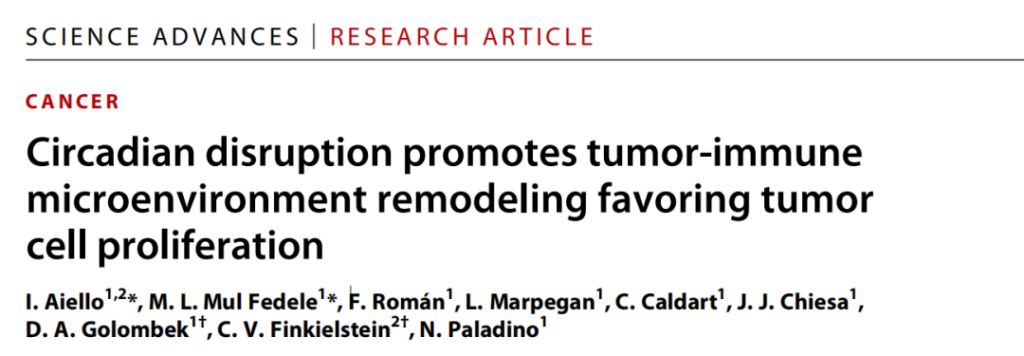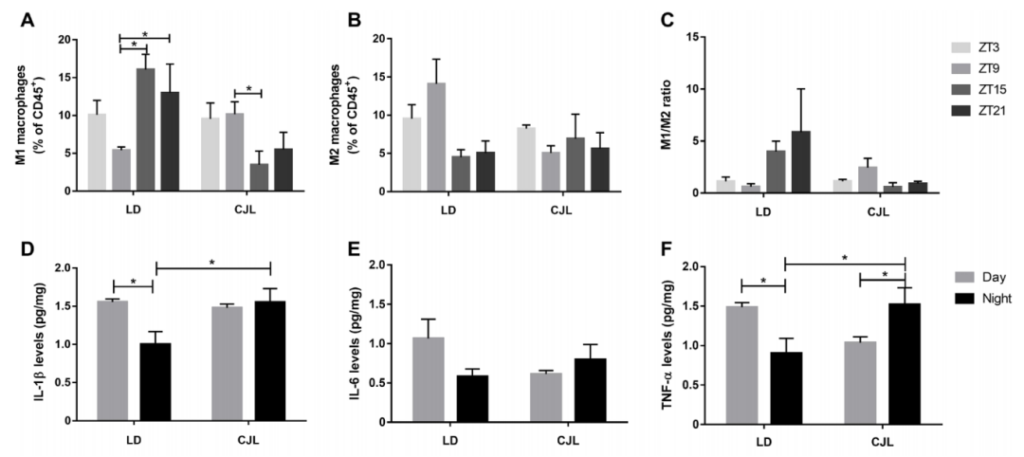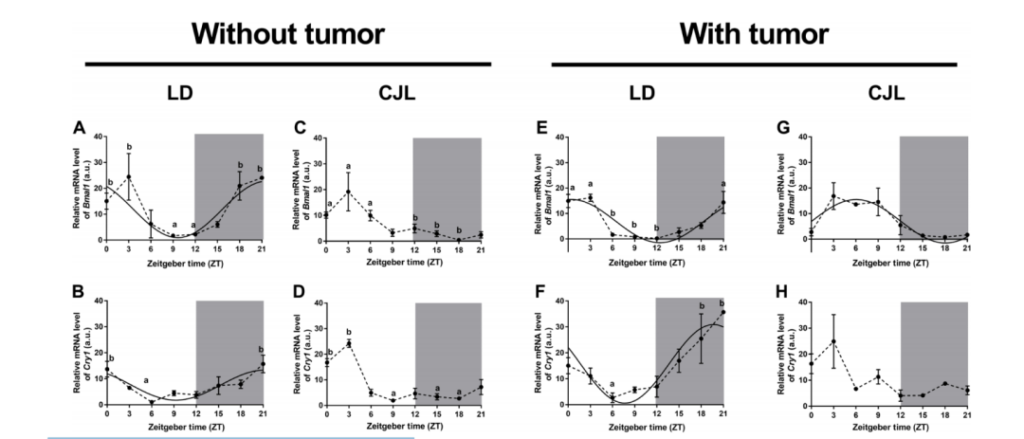Reversed work and rest or circadian disturbance will promote cancer cell proliferation
- Normal Liver Cells Found to Promote Cancer Metastasis to the Liver
- Nearly 80% Complete Remission: Breakthrough in ADC Anti-Tumor Treatment
- Vaccination Against Common Diseases May Prevent Dementia!
- New Alzheimer’s Disease (AD) Diagnosis and Staging Criteria
- Breakthrough in Alzheimer’s Disease: New Nasal Spray Halts Cognitive Decline by Targeting Toxic Protein
- Can the Tap Water at the Paris Olympics be Drunk Directly?
Science: Reversed work and rest or circadian disturbance will promote cancer cell proliferation
Science: reversed work and rest or circadian disturbance will promote cancer cell proliferation. Circadian rhythm disorders can promote tumor growth by regulating immune response and cell cycle regulators.
Every human body has a special clock-the biological clock, which manages the circadian rhythm in our body. It is worth noting that the circadian rhythm disorder will have a negative impact on the body, which is manifested in proliferative, metabolic and immune diseases, posing a huge threat to global health.
Since circadian rhythm disorders can cause fluctuations in the body’s immune capacity, it is a very important study to explore whether circadian rhythm disorders can inhibit tumor-related immune cells and ultimately promote tumor tissue growth.
Recently, researchers from the University of Buenos Aires in Argentina and Virginia Tech in the United States published a research paper entitled “Circadian disruption promotes tumor-immune microenvironment remodeling favoring tumor cell proliferation” in Science Advances.
This study shows that in a mouse melanoma model, compared with the normal light-dark cycle (LD), the circadian rhythm disorder will lead to the loss or reversal of macrophages and cytokine levels in the liver and tumor tissues of the mice , And increase the tumor growth rate and reduce the incubation period.

The biological clock mainly exists in the suprachiasmatic nucleus (SCN) of the hypothalamus, and the main environmental signal that regulates its activity is the light-dark cycle (LD). In turn, SCN can control the circadian rhythm of peripheral tissues (such as liver, lung and other brain regions) through nerve, hormone and behavioral pathways to maintain the best phase relationship between them and the environment.
In mammals, long-term circadian rhythm disorders can lead to many diseases, such as cardiometabolic syndrome, obesity, and physical and mental health disorders. At the same time, studies have shown that circadian rhythm imbalance can also affect the expression of related genes such as cell cycle, cell death and DNA damage, thereby increasing the growth rate of tumors.
In this study, the researchers explored the effect of interrupted circadian rhythm on tumor growth rate in a mouse model of non-metastatic melanoma. They found that compared with mice in the control group under normal conditions, the mice in the experimental group had a significant increase in tumor growth under circadian rhythm disorders. And the difference in survival curves between the two groups was statistically significant (P = 0.0153).

Characteristics of tumor growth and survival of experimental mice under circadian rhythm disorders
Immediately afterwards, the research team verified whether changes in the light time would affect the formation of tumor blood vessels. By comparing the number of blood vessels at the site of tumor vascular cell inoculation in the two groups, they found that under the condition of interrupted circadian rhythm, the number of blood vessels in the tumor increased significantly (P=0.0007).
At the same time, because the composition of the tumor immune microenvironment can significantly affect tumor growth, the researchers explored whether circadian rhythm disorders can affect the proportion of various immune cells in the tumor microenvironment and ultimately promote tumor progression.
The research team first detected the proportion of different tumor-infiltrating white blood cells in the tumor samples of the two groups of mice. They found that the percentage of total macrophages in the tumor samples did not differ significantly, but M1 (pro-inflammatory) and M2 ( However, the level of anti-inflammatory macrophages decreased significantly.

The circadian rhythm disorder caused a decrease in the levels of M1 (pro-inflammatory) and M2 (anti-inflammatory) macrophages in experimental mice
Moreover, in this context, circadian rhythm disorders also lead to abnormal liver rhythmic clock gene expression in mice, abnormal cyclin gene expression, increased levels of CcnA2 in tumors, and decreased expression of cell cycle inhibitor p21WAF/CIP1. All of these will increase the rate of tumor proliferation.

Abnormal expression of liver clock genes under circadian rhythm disorders
In general, this study shows that circadian rhythm disorders can promote tumor growth by regulating immune responses and cell cycle regulators. The author of the paper said that this is specifically manifested as pro-inflammatory (M1) and anti-inflammatory (M2) in the spleen and tumors. ) The percentage of macrophages changes significantly under conditions of circadian imbalance, and the decrease in the ratio of M1/M2 macrophages will promote tumor escape and tumor progression.
(source:internet, reference only)
Disclaimer of medicaltrend.org



